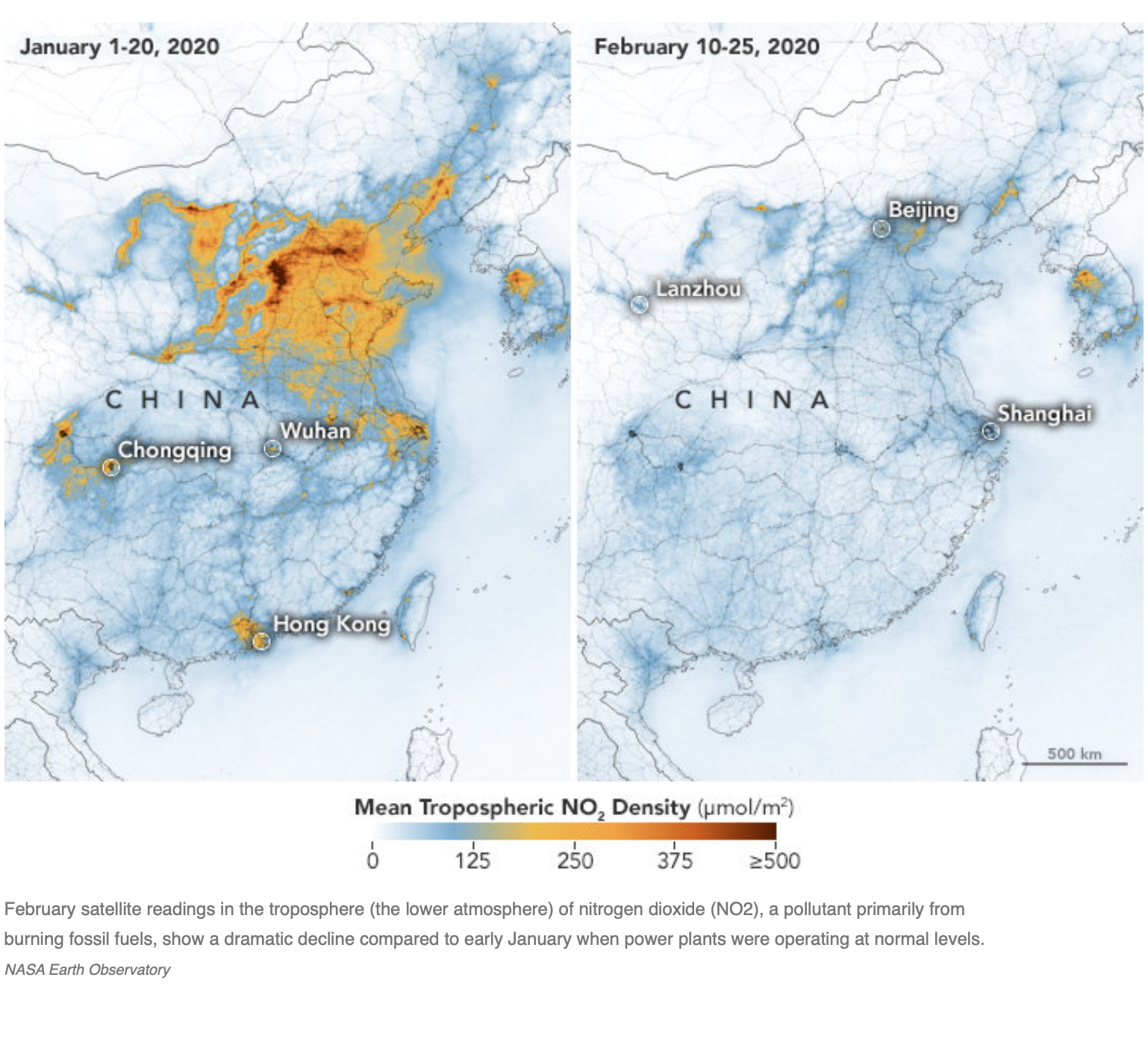
NPR and other news organizations have reported that China’s air pollution and CO2 emissions dropped significantly after Covid-19 dramatically changed human behavior. Across the world, economic activity has plummeted because of people isolating themselves and avoiding places where they typically congregate, whether voluntarily or by government mandate. Less flying, driving, entertaining and manufacturing means Earth and its natural resources are getting a reprieve from the daily transactions of humanity.
According to most assessments, if we want to live sustainably without completely depleting our natural resources, or choking the world with these wastes (including CO2 emissions), we must reduce our global consumption and economic activity by almost half. Beyond the toll taken on the health of individuals and the enormous impact on the livelihoods and financial security of billions, this pandemic has resulted in some ephemeral positive environmental consequences. I say ephemeral because once Covid-19 runs its course, whether that may be six months or two years from now, we will all go back to our schools, jobs, activities and with them our previous and predictable consumption and economic activity patterns. Why? Because it is in our human nature to want to live better lives, which for most of us has come to mean continuously improving a standard of living marked by a greater consumption of goods and services. The brief reprieve for nature brought on by the coronavirus will be just a footnote on the story of our relentless path to the complete annihilation of the natural world.
Despite all of the rhetoric, technological breakthroughs and best intentions, the world has not reduced consumption one iota, let alone by the half necessary to be sustainable. In fact, 57 years of data from the World Bank shows just the opposite. On average, global activity has grown annually by 4% since they started recording this benchmark.
The environmental benefits we are experiencing from the current global economic retraction are a powerful demonstration to all of us, including environmentalists, climate activists and world leaders, of what it will take to reduce the consumption of close to 8 billion people - a catastrophic event like a deadly virus.
The ecological lesson of Covid-19 is clear. The only safe, just and stable path to long-term sustainability is to bring our unsustainable population levels back into balance with Earth’s resources. By promoting a small family culture, educating girls and making family planning accessible to all, the world's population can grow smaller intentionally with sensitivity and within a human rights context. As a result, we will permanently reduce our excessive and destructive consumption of the world’s finite resources and, best of all, we can create a society and economy that can survive and thrive with human interaction and be in balance with what nature can provide us.

